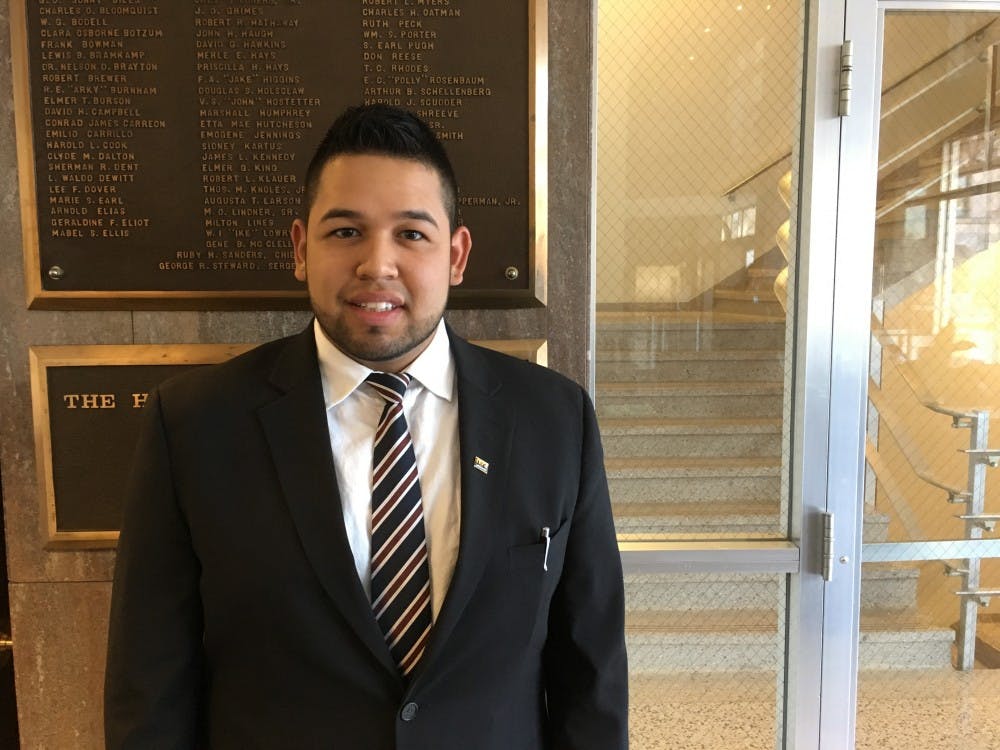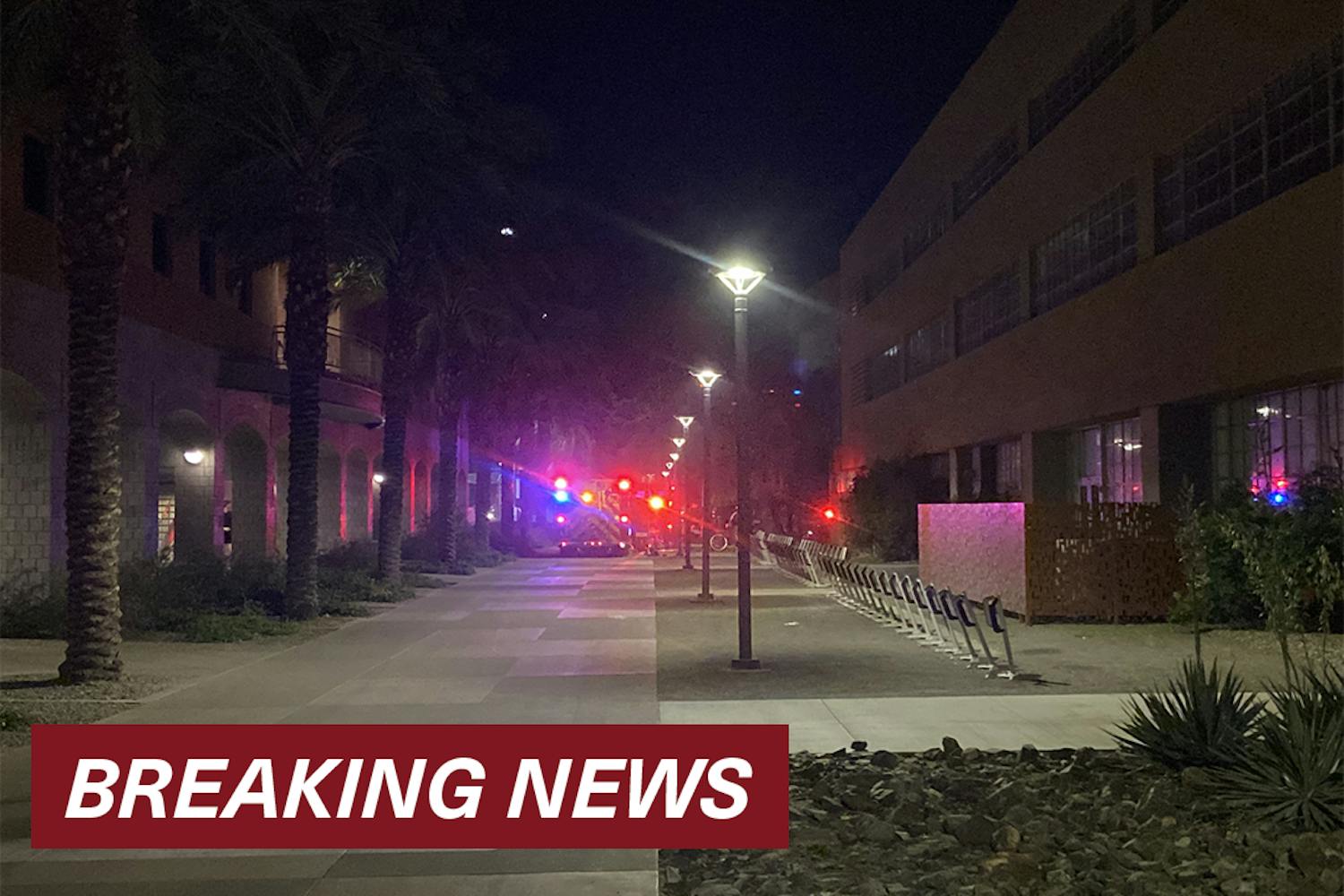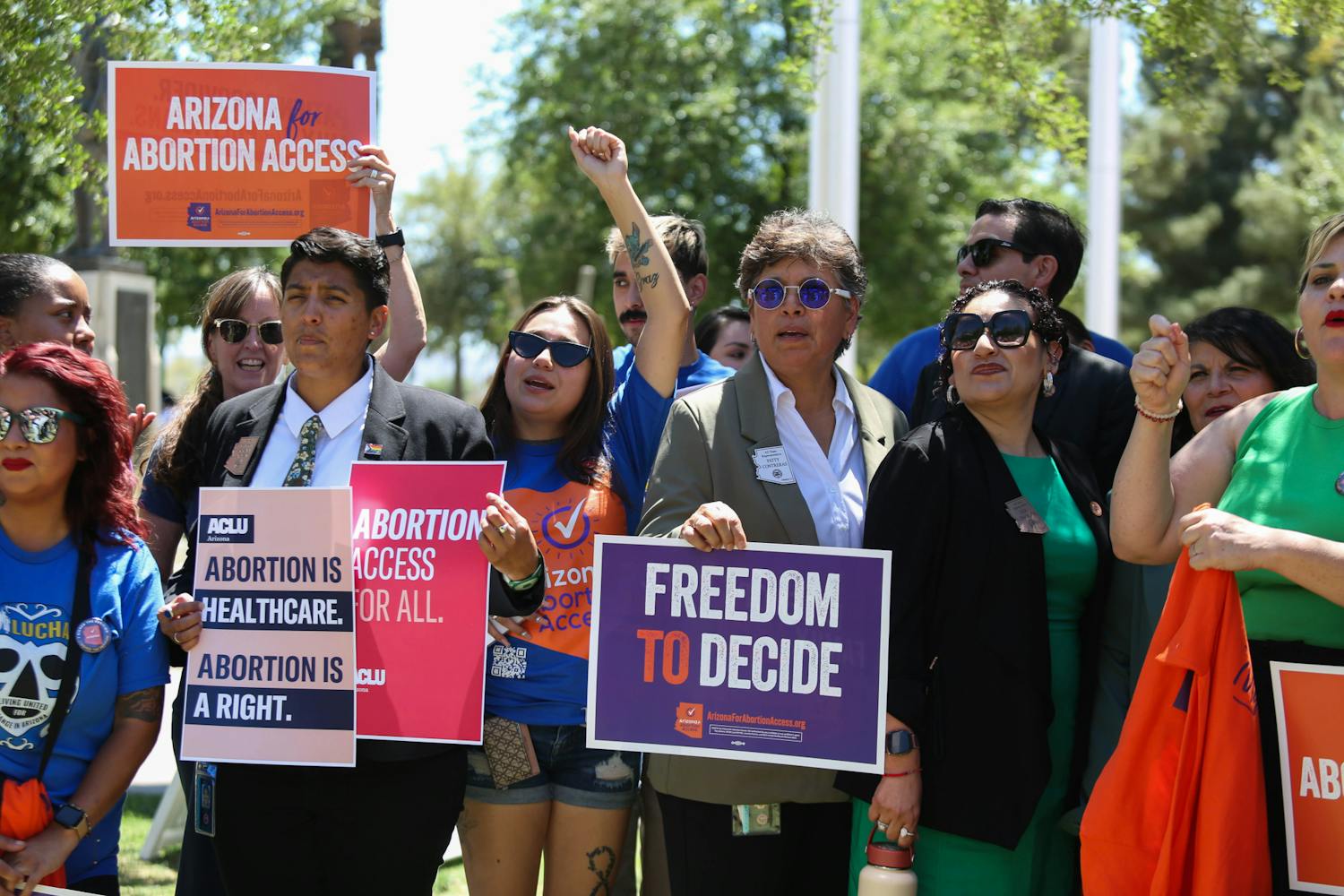At-risk youth may soon be better prepared for their post-high school careers, thanks to a bill that would create the option for college readiness programs in schools.
House Bill 2184 would allow school districts and charter schools to create a program to provide “academic support, including tutoring and remediation to ensure that participating youths meet the academic standards adopted by the state board of education.”
The bill was introduced by state Rep. Diego Espinoza (D-Phoenix), who said that the program lost funding several years ago. Espinoza said the bill allows a school system to help those who need a "second chance."
“It allows these counselors to expose them to that opportunity and see if that’s where the child is interested in,” Espinoza said. “Furthering that fact there’s a community involvement element, a leadership skills element to that as well.”
The program would specifically target youth who are likely to drop out of high school or who have “documented academic, personal or vocational barriers to success in high school and the workplace.”
Under the legislation, at-risk youth would spend at least nine consecutive months in the program during high school and a full year in the program after graduation. Espinoza said the post-high school monitoring is to provide both a support system for the student and to monitor his or her success.
“Monitoring is (asking) 'Are they successful in the path?'” Espinoza said. “If they have any barriers, this program is also set up to ensure and to prop them up or to give them assistance to ensure that they are going to be successful in the future.”
The bill went through the House Education Committee on Monday where there was testimony from students from the Jobs for Arizona Graduates program, a program similar to what HB 2184 would allow in schools.
Mario Marquez, a public service and public policy junior at ASU, said that the program was able to help him grow in the community when he was struggling.
“In my junior year of high school, I was struggling, I didn’t have my parents with me and didn’t have a stable place to live,” Marquez said. “They were there with me giving me the confidence and motivation to find opportunities outside the classroom and got me connected in the community.”
Marquez, who also works for ASU as transfer student ambassador, said the program continued to work with him in college, which helped him gain internships and opportunities.
“They always remind me to work outside in the community, to find internships, fellowships, volunteer work,” Marquez said. “I’ve been part of many political campaigns and I think that’s why I chose my major now.”
Felicia Freeman, a sociology freshman at Grand Canyon University, said the program is more than just another club.
“It took me beyond high school,” Freeman said. “After we graduate our school, our teacher … they contact us once every month to see how we’re doing, how we’re doing with school … and how we’re doing as far as moving on.”
Reach the reporter at maatenci@asu.edu or follow @mitchellatencio on Twitter.
Like The State Press on Facebook and follow @statepress on Twitter.




